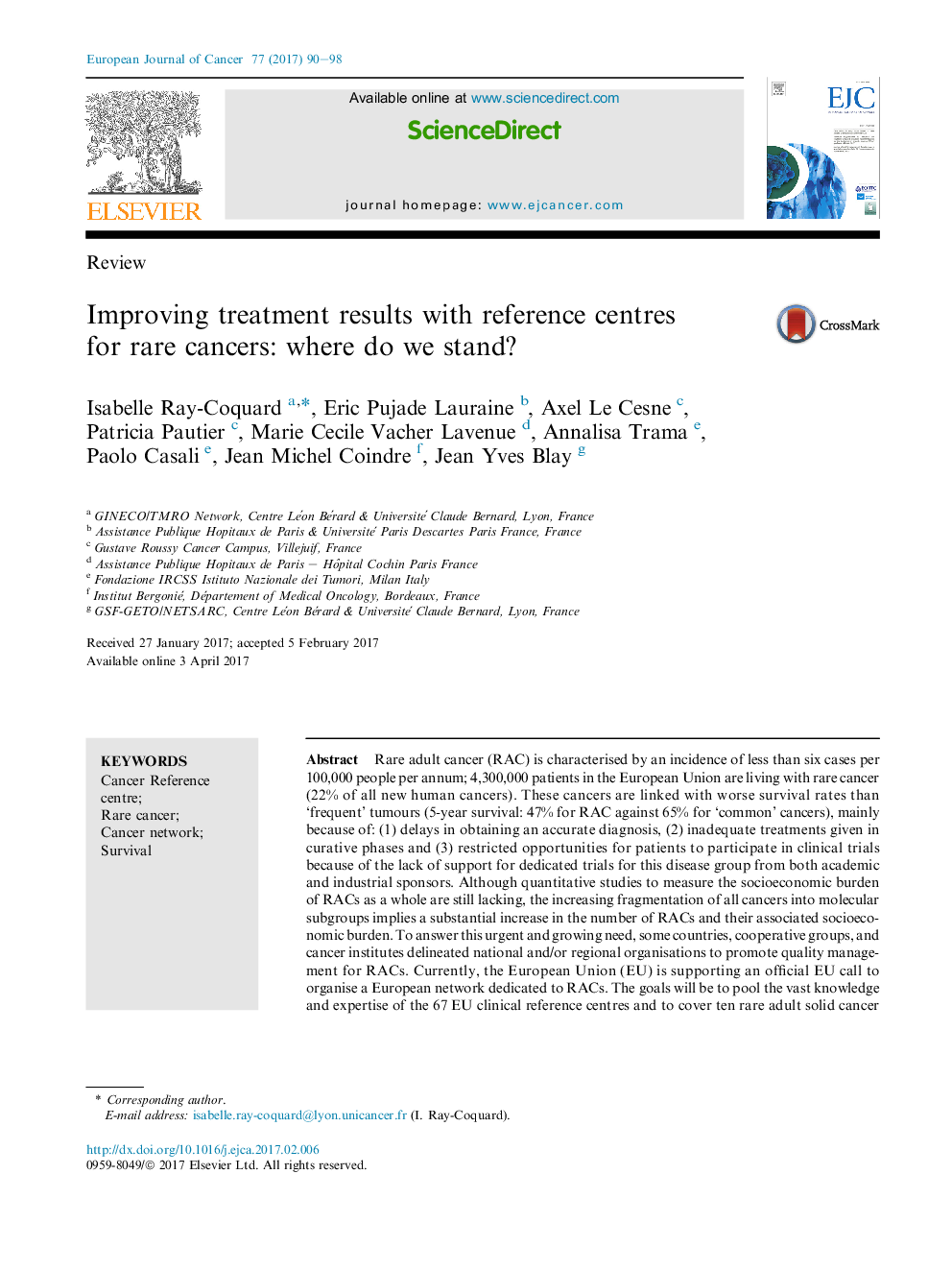| کد مقاله | کد نشریه | سال انتشار | مقاله انگلیسی | نسخه تمام متن |
|---|---|---|---|---|
| 5526629 | 1547055 | 2017 | 9 صفحه PDF | دانلود رایگان |

- Rare adult cancer is characterized by an incidence of <6/100,000 people/year and are linked with the worst survival.
- Worse prognosis is due to delays for diagnosis, inadequate treatments and less opportunities to participate in clinical trials.
- One method to improve treatment results is to address the complexity of care and to promote more teamwork in care.
- French example highlights importance of network with regional organization to maximize the efforts for a majority.
- European Union supports a dedicated network. Goals are pooling knowledge and expertise of 67 EU reference centres across 18 countries.
Rare adult cancer (RAC) is characterised by an incidence of less than six cases per 100,000 people per annum; 4,300,000 patients in the European Union are living with rare cancer (22% of all new human cancers). These cancers are linked with worse survival rates than 'frequent' tumours (5-year survival: 47% for RAC against 65% for 'common' cancers), mainly because of: (1) delays in obtaining an accurate diagnosis, (2) inadequate treatments given in curative phases and (3) restricted opportunities for patients to participate in clinical trials because of the lack of support for dedicated trials for this disease group from both academic and industrial sponsors. Although quantitative studies to measure the socioeconomic burden of RACs as a whole are still lacking, the increasing fragmentation of all cancers into molecular subgroups implies a substantial increase in the number of RACs and their associated socioeconomic burden. To answer this urgent and growing need, some countries, cooperative groups, and cancer institutes delineated national and/or regional organisations to promote quality management for RACs. Currently, the European Union (EU) is supporting an official EU call to organise a European network dedicated to RACs. The goals will be to pool the vast knowledge and expertise of the 67 EU clinical reference centres and to cover ten rare adult solid cancer domains across more than 18 countries in order to deploy an integrated, EU-wide capacity towards accelerated innovative treatments and care for RACs while empowering patients. This article will summarise these experiences and the potential benefit for patients.
Journal: European Journal of Cancer - Volume 77, May 2017, Pages 90-98